- English
- Français
Visits
The Commission conducts visits to Member States both to promote the inter-American human rights standards and to carry out on-the-spot observations. There are three types of visits carried out by the Commission: on-site observations, working and promotional visits.
On-site visits are usually carried out by the Commission plenum and the observations are presented in a country report, published after the visit. On-site visits include trips to different parts of the country and require the State's consent for them to be carried out.
Working visits are characterized by high-level meetings with State authorities and do not necessarily entail on-site observations. At the end of working visits, it is customary to publish a press release with details of the meetings organized. Working visits require the State's consent for them to be carried out.
Promotional visits are carried out to promote inter-American human rights standards. They can include the presence of commissioners in seminars, congresses and other academic or training activities, for example. At the end of promotional visits, no report or press release is published and its realization does not depend on the consent of the State, which is only notified in advance.
2023
Guyane, Du 28 novembre au 1 décembre 2023

The IACHR carried out a technical cooperation and promotional visit to the Cooperative Republic of Guyana from November 28 to December 1, 2023. The visit aimed to strengthen the Commission's relations with the country, promote technical cooperation mechanisms, and provide guidance on human rights standards in keeping with the five-year Strategy for the Caribbean and IACHR’s strategic framework.
The delegation was led by Commissioner Margarette May Macaulay, President of the IACHR and Rapporteur for the Rights of People of African Descent and Against Racism and for the Rights of Older Persons, and Commissioner Roberta Clarke, Second Vice-President and the Country Rapporteur. They were accompanied by specialists of the Executive Secretariat. Activities included high-level State meetings, a dialogue with organizations, and participation in a promotional panel and media broadcast on the Inter-American Human Rights System. The delegation also met with United Nations agencies, CARICOM, and the University of Guyana.
Sainte-Lucie, Du 27 au 30 juin 2023
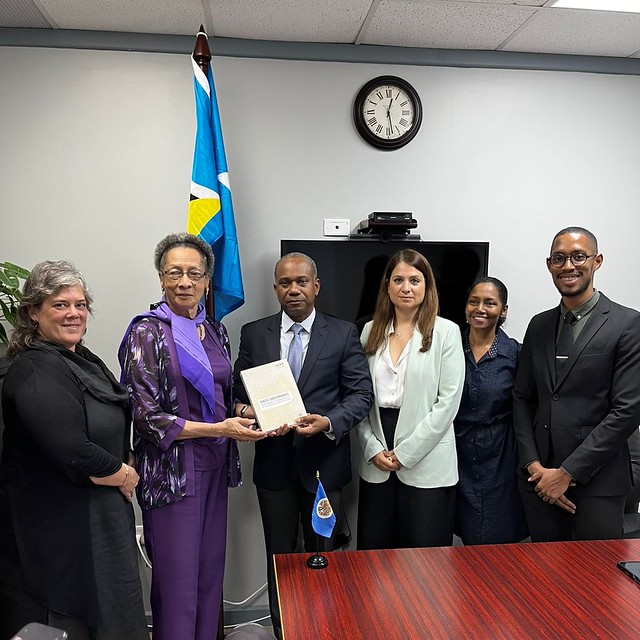
The IACHR carried out a technical cooperation and promotional visit to St. Lucia from June 27 to 30, 2023. This visit focused on enhancing the collaboration of the IACHR with State and non-state actors, promoting institutional strengthening through technical cooperation and capacity building on the Inter-American human rights system and its mechanisms, in keeping with the Commission's priorities according to the objectives of its Strategic Plan 2023-2027.
The delegation was led by Commissioner Margarette May Macaulay, who was accompanied by a team of human rights specialists of the Executive Secretariat. During the visit, the delegation met with the executive and legislative branches of government, as well as with non-state actors from civil society. Additionally, training workshops on the Inter-American human rights system were conducted for public officials and civil society organizations.
Suriname, Du 6 au 8 février 2023
The IACHR carried out a technical cooperation and promotional visit to Suriname from February 6 to 8, 2023, with the objective of strengthening the Commission's relations with the country and promoting the technical cooperation mechanism. The visit also focused on institutional strengthening on human rights standards between state and non-state actors in keeping with the Commission's priorities according to the objectives of its Strategic Plan 2023-2027.
The delegation was led by Commissioner Stuardo Ralón and Commissioner Margarette May Macaulay, who were accompanied by a team of human rights specialists of the Executive Secretariat. During the visit, the delegation met with the executive, the legislature, and the judiciary as well as with non-state actors from civil society, academia, the Bar Association, and with the International Organization of Migration.
2022
Dominique, Du 22 au 23 juin 2022
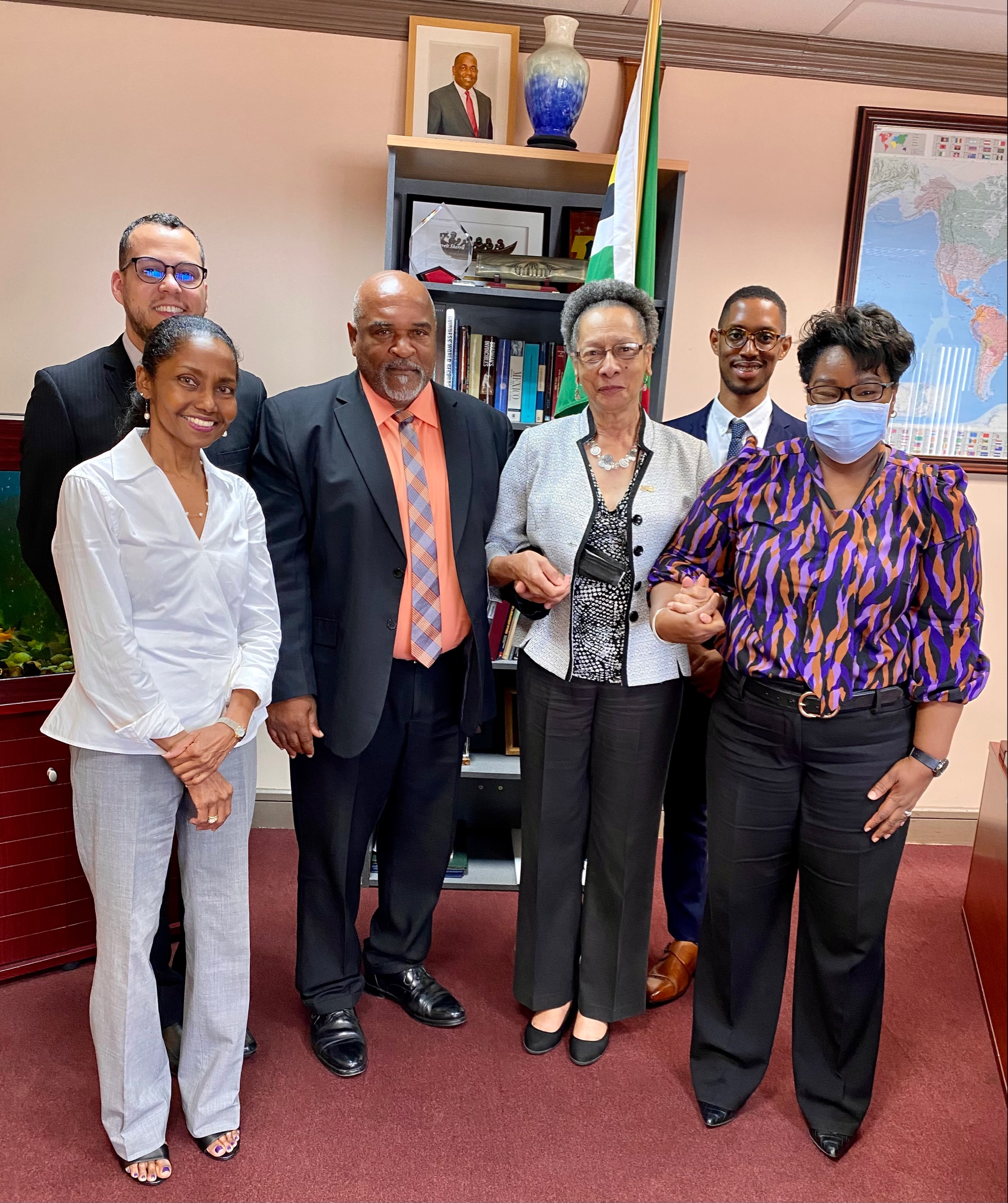
During the visit, the delegation met with the Acting Prime Minister of Dominica and authorities from the Ministry of Foreign Affairs, International Business and Diaspora Relations, the Ministry of Youth Development and Empowerment, the Electoral Office and the Ministry of National Security and Home Affairs. The delegation also conducted meetings with civil society and international organizations based in Dominica.
The IACHR delegation was led by Commissioner Margarette May Macaulay, second Vice-President, Rapporteur on the Rights of Older Persons and on the Rights of People of African Descent and against Racial Discrimination, as well as Country Rapporteur for Dominica. It also included specialists from the IACHR Executive Secretariat.
2019
Haïti, Du 17 au 20 décembre 2019
The Inter-American Commission on Human Rights (IACHR) carried out an on-site visit to Haiti between December 17 and 20, 2019 to observe the human rights situation in the country and strengthen cooperation actions in the area of human rights.
During the visit, the Commission met with the President of the Republic, the Minister of Foreign Affairs, the Minister of Human Rights and the Fight against Extreme Poverty, the Minister of Justice and Public Security, the National Police and the Minister of the Condition and Rights of Women. In addition, the IACHR held meetings with the Office of Citizen Protection (OPC), the National Office for Migration, and with international organizations and diplomatic authorities from the states of Brazil, Canada, Spain, the United States, France, and the European Union. Likewise, it had meetings with members of more than 70 civil society organizations dedicated to defending the rights of women, LGBTI people, journalists, representatives of victims of police violence and survivors of the La Saline massacre, people deprived of liberty, and victims of other acts of violence in the country.
The delegation was led by Commissioner Flávia Piovesan, Country Rapporteur for Haiti and on the Rights of LGBTI Persons, and comprised of Commissioner Margarette May Macaulay, Rapporteur on the Rights of Women and on the Rights of Afro-descendants and against Racial Discrimination, and staff of the Executive Secretary.
Haïti, Du 3 au 4 juin 2019

The Inter-American Commission on Human Rights (IACHR) visited Haiti on June 3 and 4 to promote dialogue with state authorities and civil society on the human rights situation in the country, while identifying opportunities for collaboration with the IACHR. The delegation was led by the executive secretary, Paulo Abrão, who was accompanied by technical staff from the IACHR executive secretariat.
During the visit, the delegation met with authorities from the Ministry of Foreign Affairs, the Ministry of Human Rights, the Ministry of Women’s Affairs and Women’s Rights, the Ministry of Justice and Public Security, the Office for Citizen Protection, the Senate, and the Chamber of Deputies. It also met with the Head of Human Rights of the United Nations Mission for Justice Support in Haiti (MINUJUSTH). The delegation held meetings with civil society organizations that are working to defend human rights in the country and discussed the main challenges facing human rights in Haiti.
The Haitian state confirmed that it would be willing to host an IACHR Period of Sessions in 2020. It also expressed interest in establishing a Human Rights Working Group, a mechanism used by the IACHR to promote dialogue between the IACHR itself, the state, and civil society to develop and implement measures on priority human rights issues. The IACHR repeated its request to the state of Haiti to conduct an on-site visit to the country, which it has not done since 2004.
Barbade, Bahamas, Jamaïque et Trinité-et-Tobago, Du 19 au 28 février 2019
The Commission made the fourth working visit to Barbados, Trinidad and Tobago, Jamaica, and the Bahamas from February 19 to 28, 2019. The delegation was made up of Commissioners Esmeralda Arosemena de Troitiño and Margarette May Macaulay and two specialists from the thematic rapporteurs on women's rights and children's rights. At the training seminar held in the Bahamas, the Commission understood that a working visit to the English-speaking Caribbean was extremely important in order to understand the local reality, the challenges that still affect the region, and provide cooperation whenever possible. In the case of Barbados, this was the Commission's first visit in almost 60 years.
The main objective of the visit was to strengthen the region's ties with the Inter-American System, which is one of the components of this project, and to address especially the situation of women, girls, and adolescents in these countries.
During this visit, 9 high-level meetings were held with Ministers of State and Permanent Secretaries. The Commission also took the opportunity to organize four meetings with civil society organizations, one in each country. Meetings were also held with experts on gender and children issues, and the Commission also met with international organizations and Canadian High Commissioners in these countries.
2013
République dominicaine, Du 2 au 6 décembre 2013
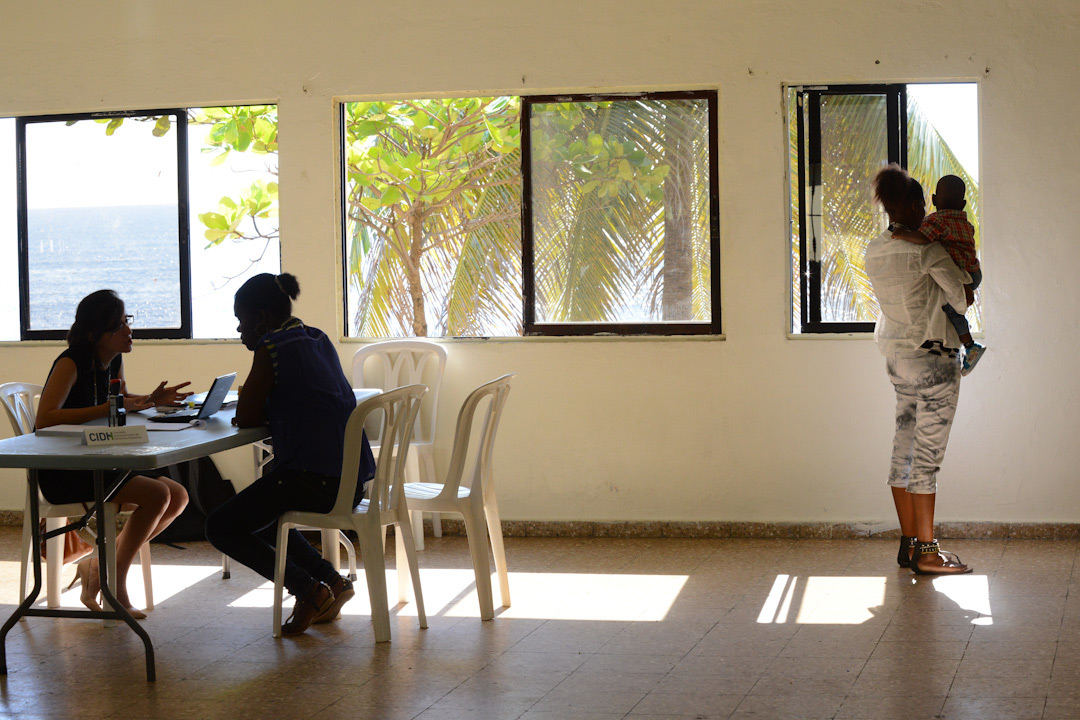
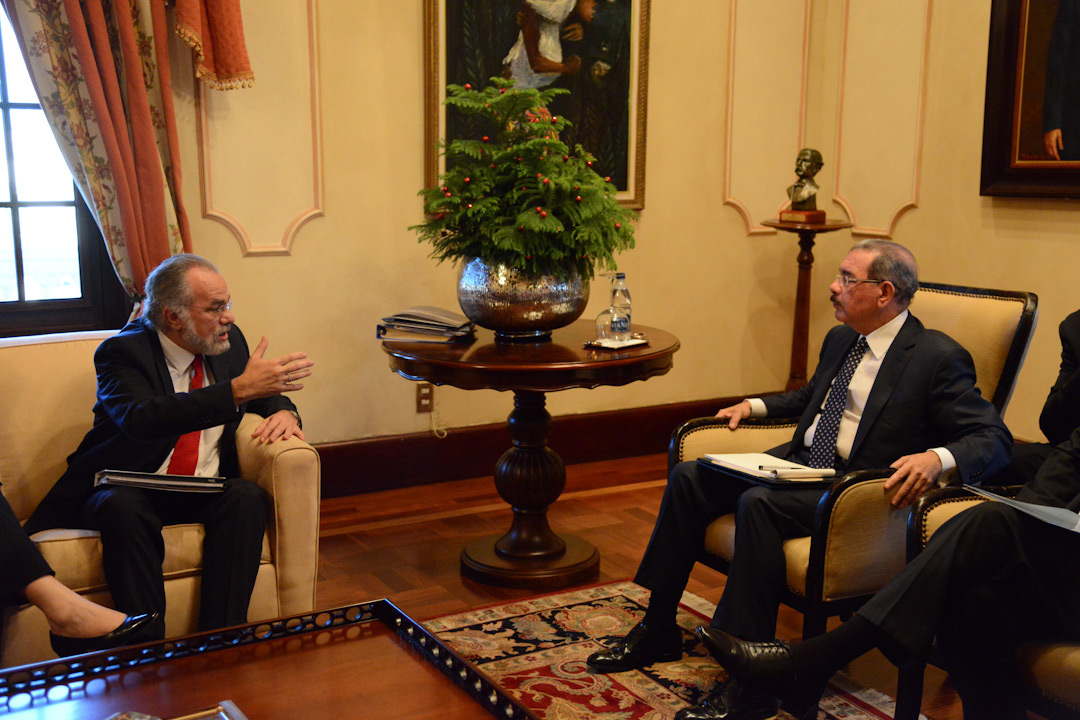
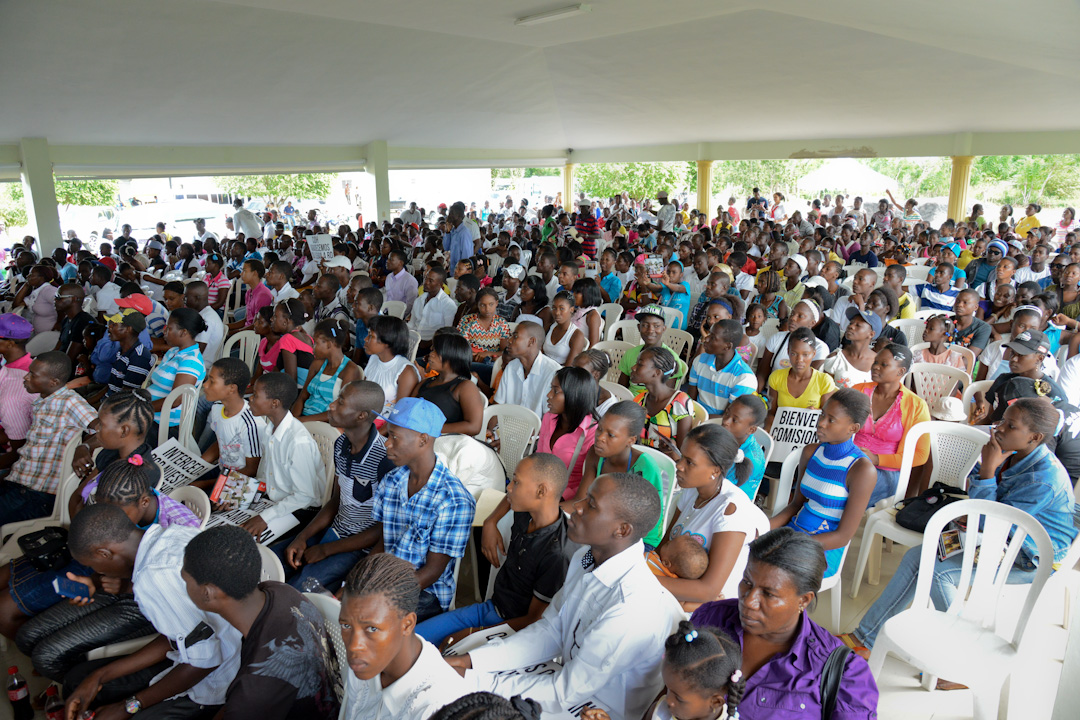
The Inter-American Commission on Human Rights (IACHR) conducted an on-site visit to the Dominican Republic on December 2-5, 2013, in response to an invitation by the State. The purpose of the visit was to observe the situation related to the rights to nationality, identity, and equal protection without discrimination, along with other related rights and issues. The Commission carried out this visit to oversee compliance with the international commitments made freely by the State of the Dominican Republic in exercise of its sovereignty.
Suriname, Du 23 au 25 janvier 2013
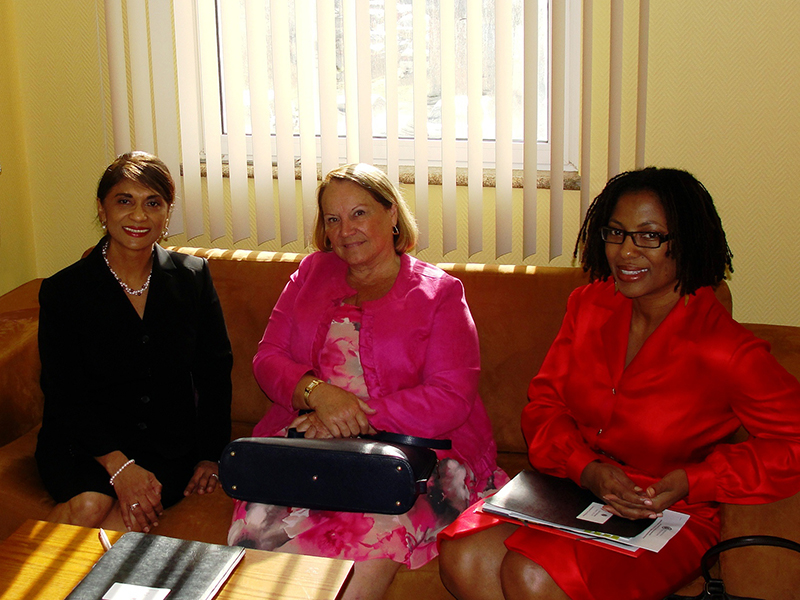
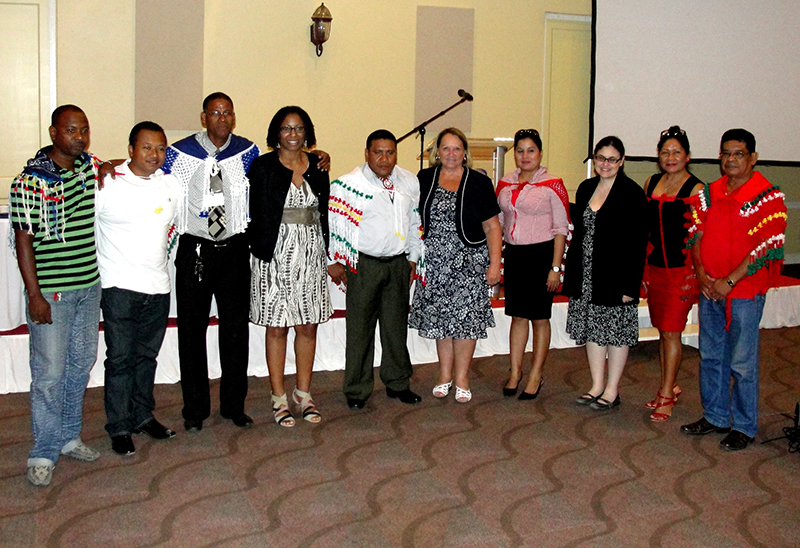
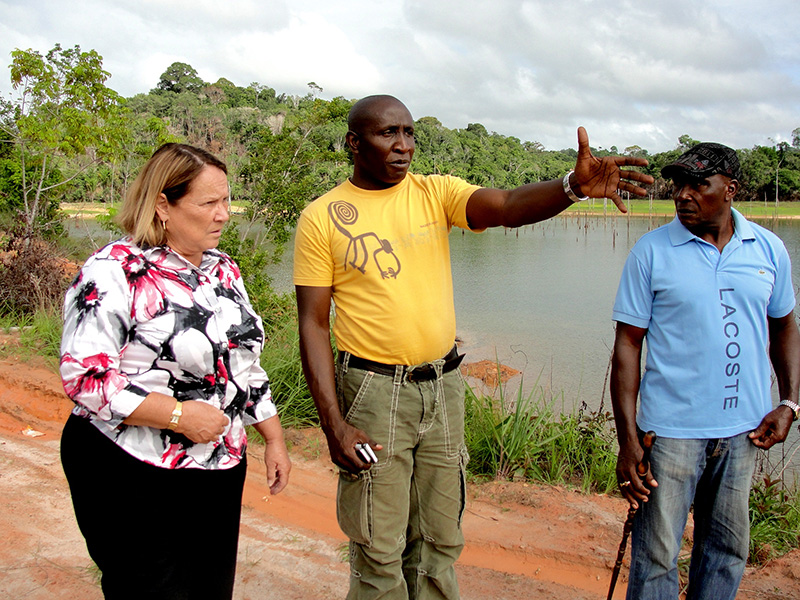
The Inter-American Commission on Human Rights undertook a working visit to the Republic of Suriname between January 23-25, 2013 in order to examine the situation of the rights of women and indigenous peoples. The delegation was composed of Commissioner Dinah Shelton, Rapporteur on the Rights of Indigenous Peoples; Commissioner Tracy Robinson, First Vice-President and Rapporteur on the Rights of Women; and staff from the Executive Secretariat.
During the visit, the delegation held meetings with the highest authorities of the Suriname state, and representatives from civil society organizations dedicated to the defense of the rights of indigenous peoples, women and LGBTI persons in the country. Several members of the delegation also traveled to the district of Brokopondo and the village of Brownsweg to visit a Maroon village composed of 8,000 persons. The delegation offered in a workshop attended by approximately fifty government officials on the Inter-American System of Human Rights and an academic event at the Anton de Kom
University, with the participation of law professors and students.
2012
Haïti, Du 27 février au 2 mars 2012
Commissioner Ortiz, in her capacity as Rapporteur on the Rights of the Child, was invited by UNICEF to participate, along with the Chairman of the Committee on the Rights of the Child of the United Nations, on an observation visit on the issue of international adoptions in Haiti. The visit took place February 27 and 28. Also, from February 29 to March 2, Commissioner Ortiz, in her capacity as Rapporteur for Haiti, together with a staff member of the Executive Secretariat, held meetings with authorities, international agencies, and civil society, in which she introduced herself as the new Rapporteur and collected information on various issues.
2009
Haïti, Du 24 au 29 mai 2009
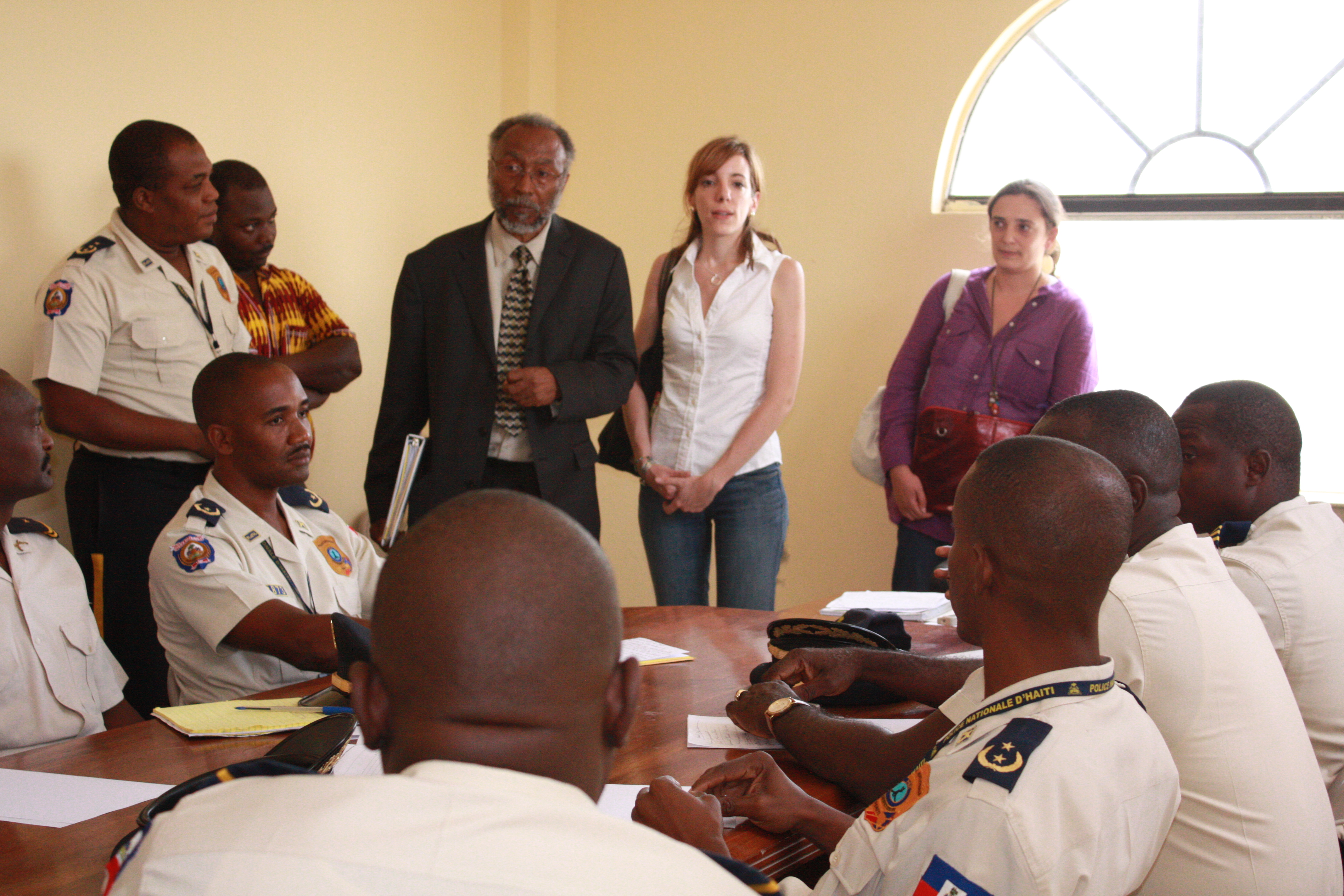
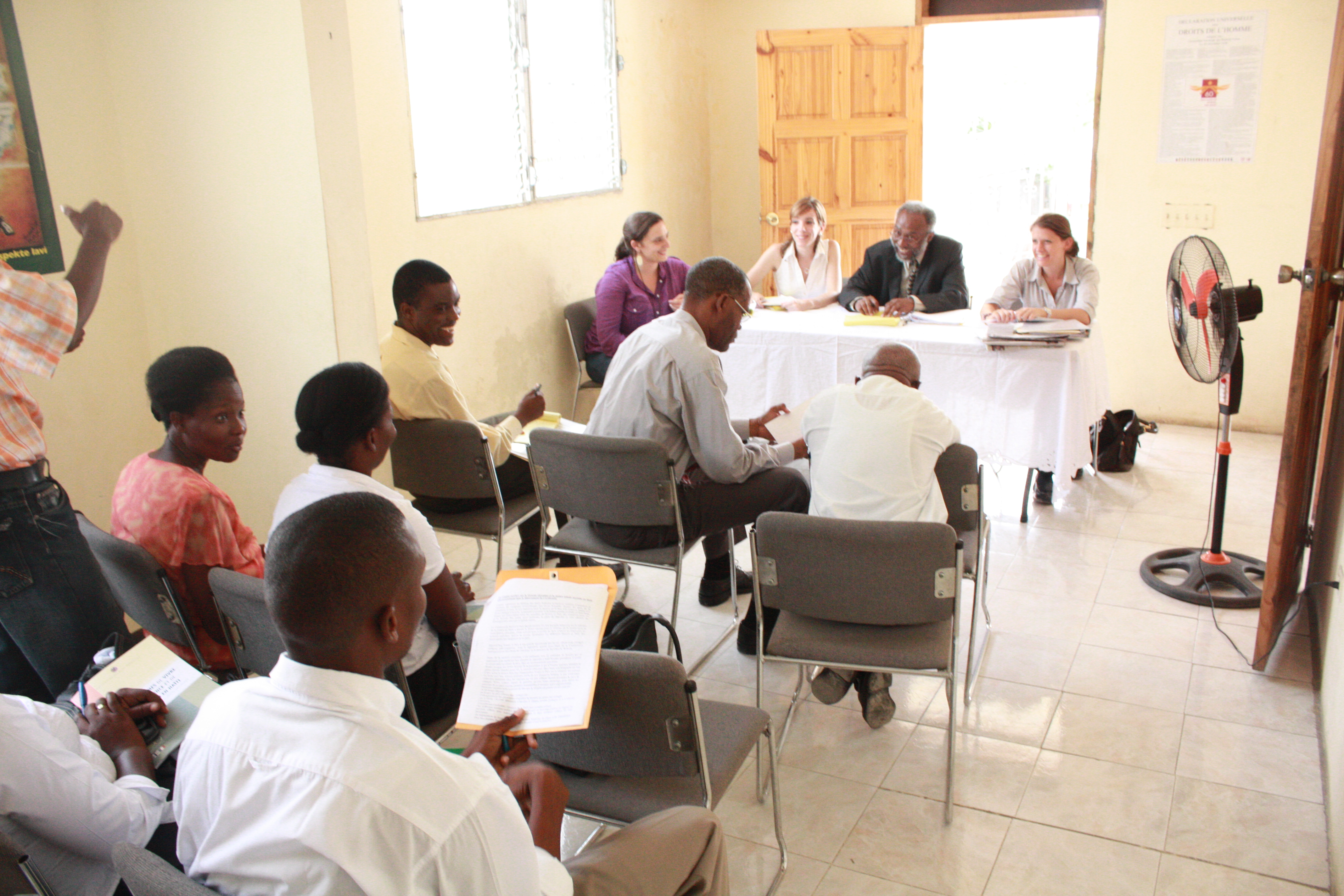
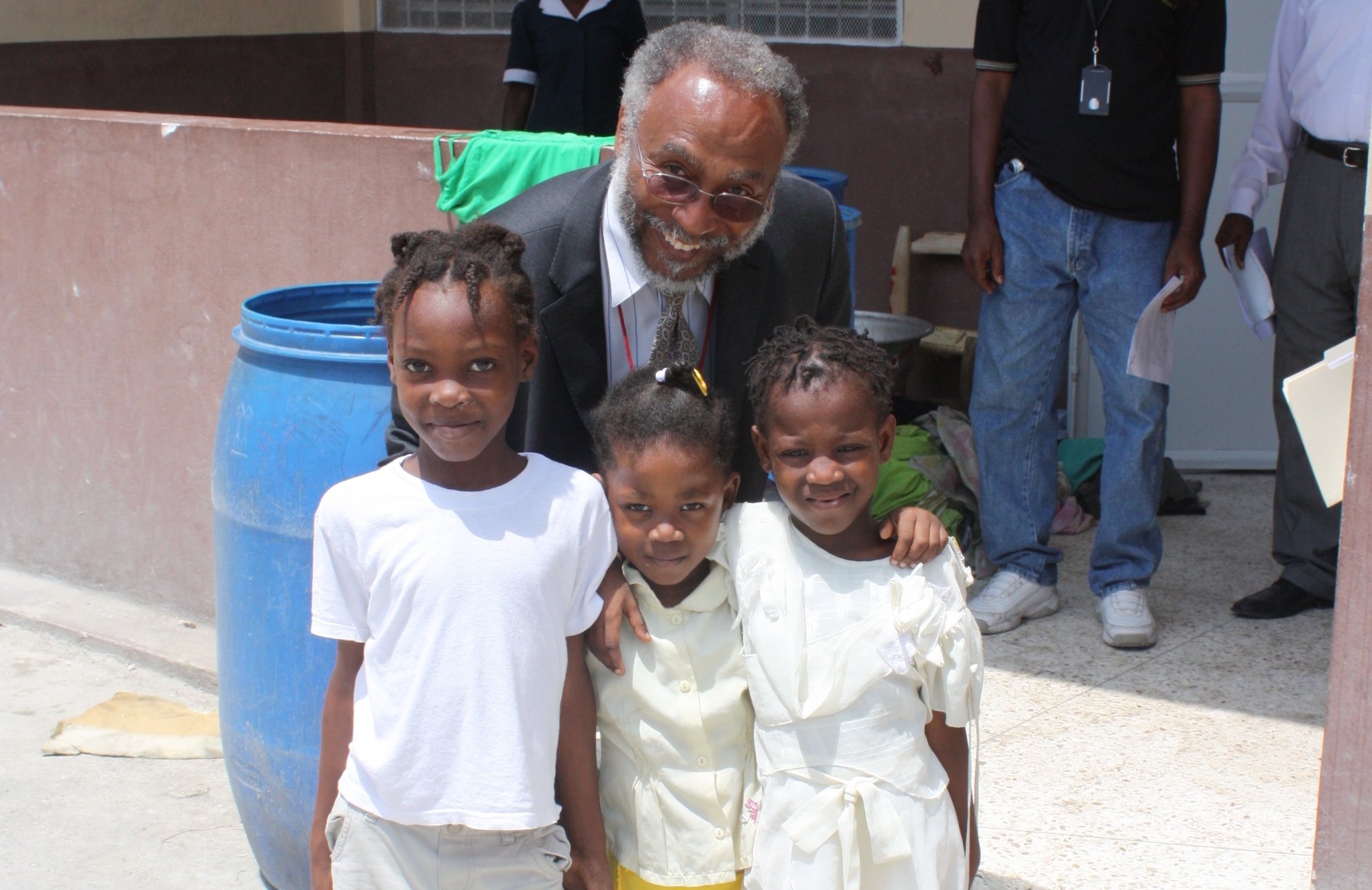
La CIDH a effectué une visite de travail en Haïti du 24 au 29 mai 2009. La délégation était dirigée par le commissaire Clare K. Roberts en sa qualité de Rapporteur de la CIDH pour Haïti, et englobait également les spécialistes des droits de l'homme Angelita Baeyens et Marie Claude Fournier et par Begoña Arellano, UNICEF. Le but principal de la visite était de recueillir des renseignements sur la sécurité des citoyens, la situation des droits de l'homme et la justice pour mineurs. Cette visite a été organisée dans le cadre d'un ensemble de travaux de l'UNICEF, le bureau régional du Haut Commissariat des Nations Unies aux droits de l'homme et la Commission pour la préparation de rapports spéciaux sur ces sujets.
À Port-au-Prince, la délégation a rencontré des représentants du ministère des Affaires étrangères, le Ministère des Affaires sociales et du Travail, l'Institut de la protection sociale et de la recherche (IBESR), la Division de la protection des enfants de la Police nationale, l'adresse centrale la police judiciaire, l'administration pénitentiaire, le personnel pénitentiaire et le Bureau de la Protection du Citoyen. La délégation a également rencontré deux membres du Tribunal pour la Jeunesse. La délégation a visité le siège de la Mission de stabilisation des Nations Unies en Haïti (MINUSTAH). Il a également rencontré des organisations non gouvernementales locales et internationales qui travaillent sur la sécurité des citoyens et pour la justice des mineurs en Haïti. En outre, la délégation a participé à une conférence sur la CIDH et le système interaméricain pour la protection des droits de l'homme à l'Université d'Etat de Port-au-Prince.
Le 29 Juin 2009, la Commission a publié un communiqué de presse sur la visite en Haïti.
2008
Jamaïque, Du 1 au 5 décembre 2008
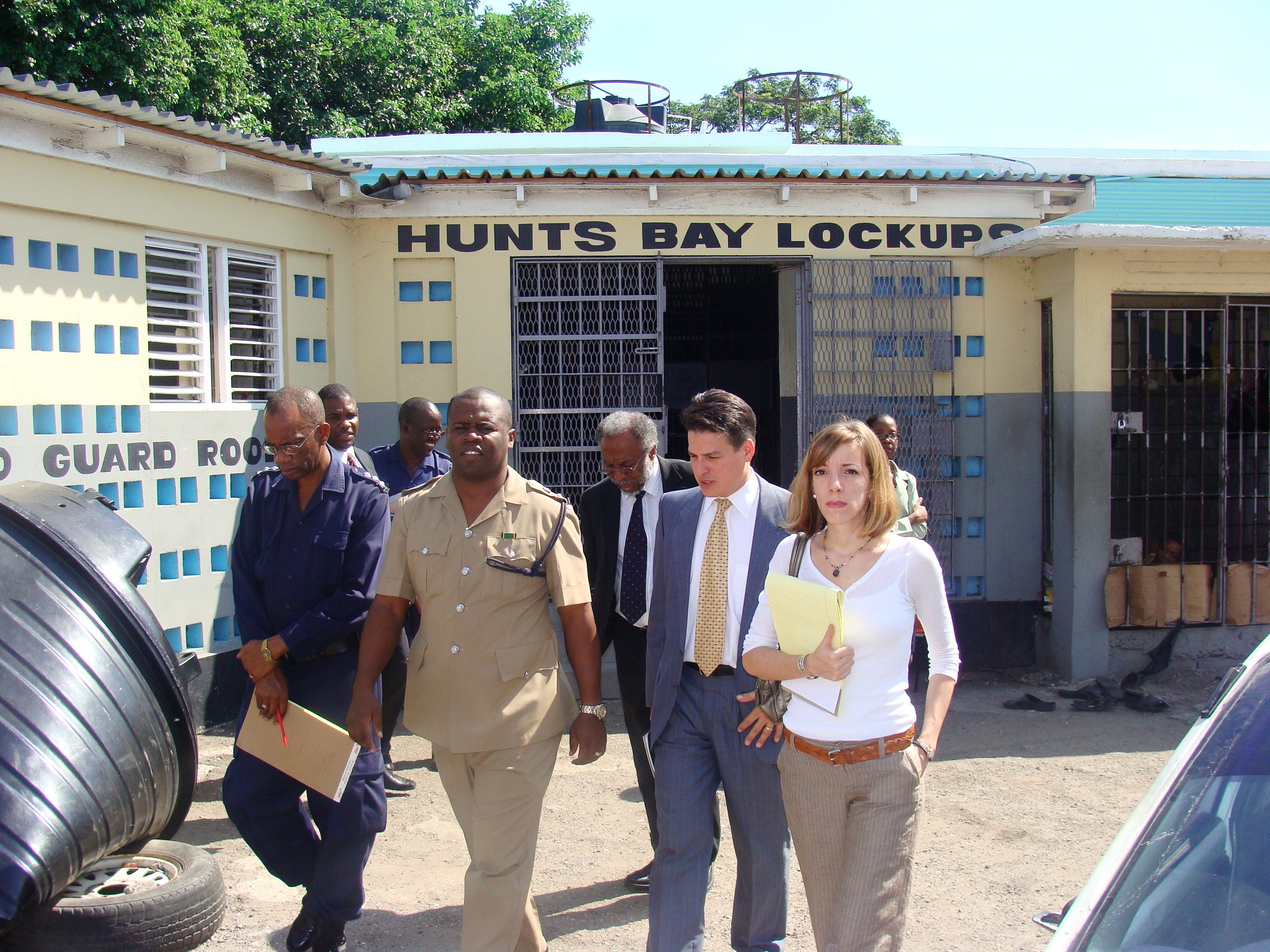
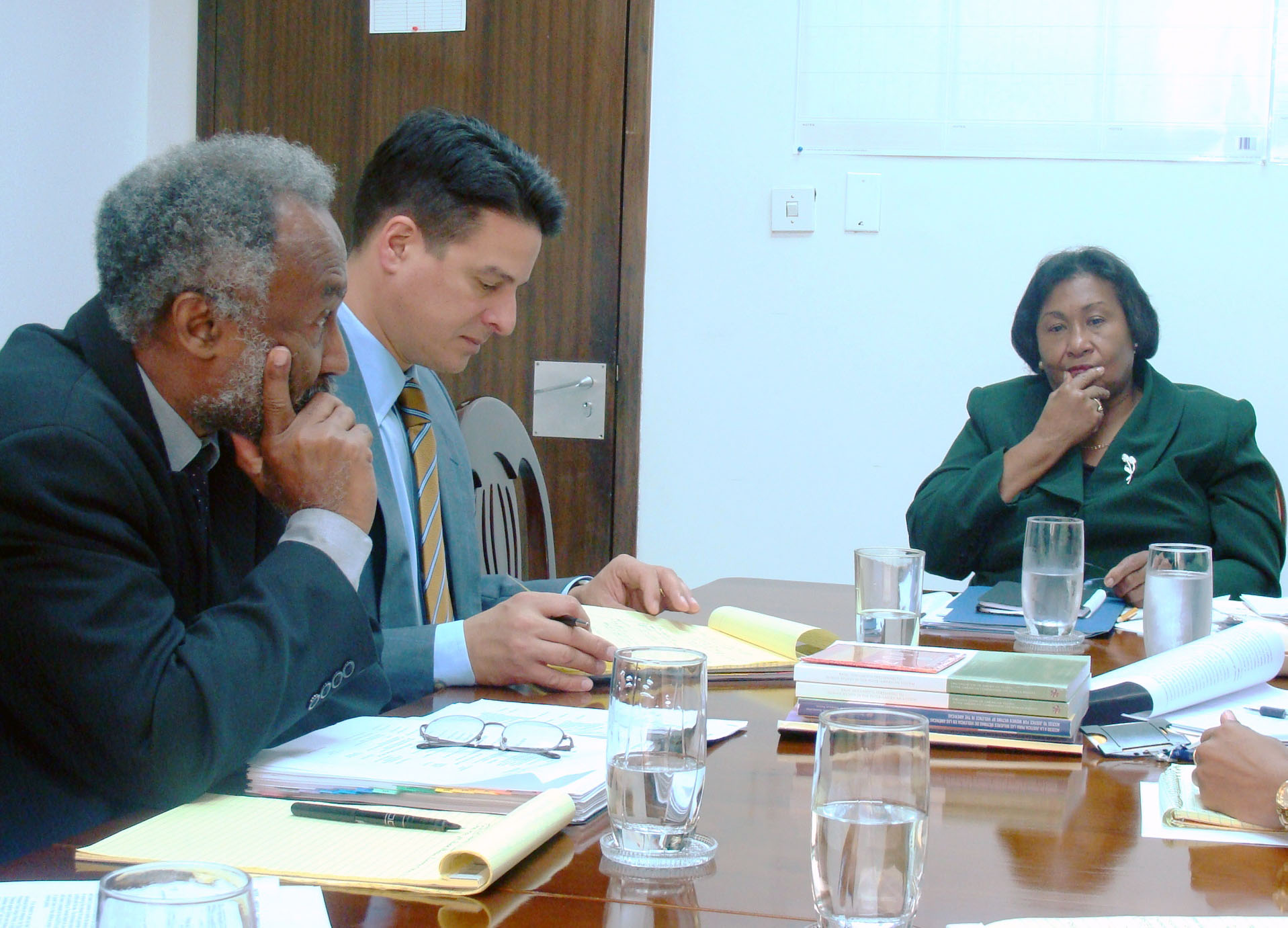
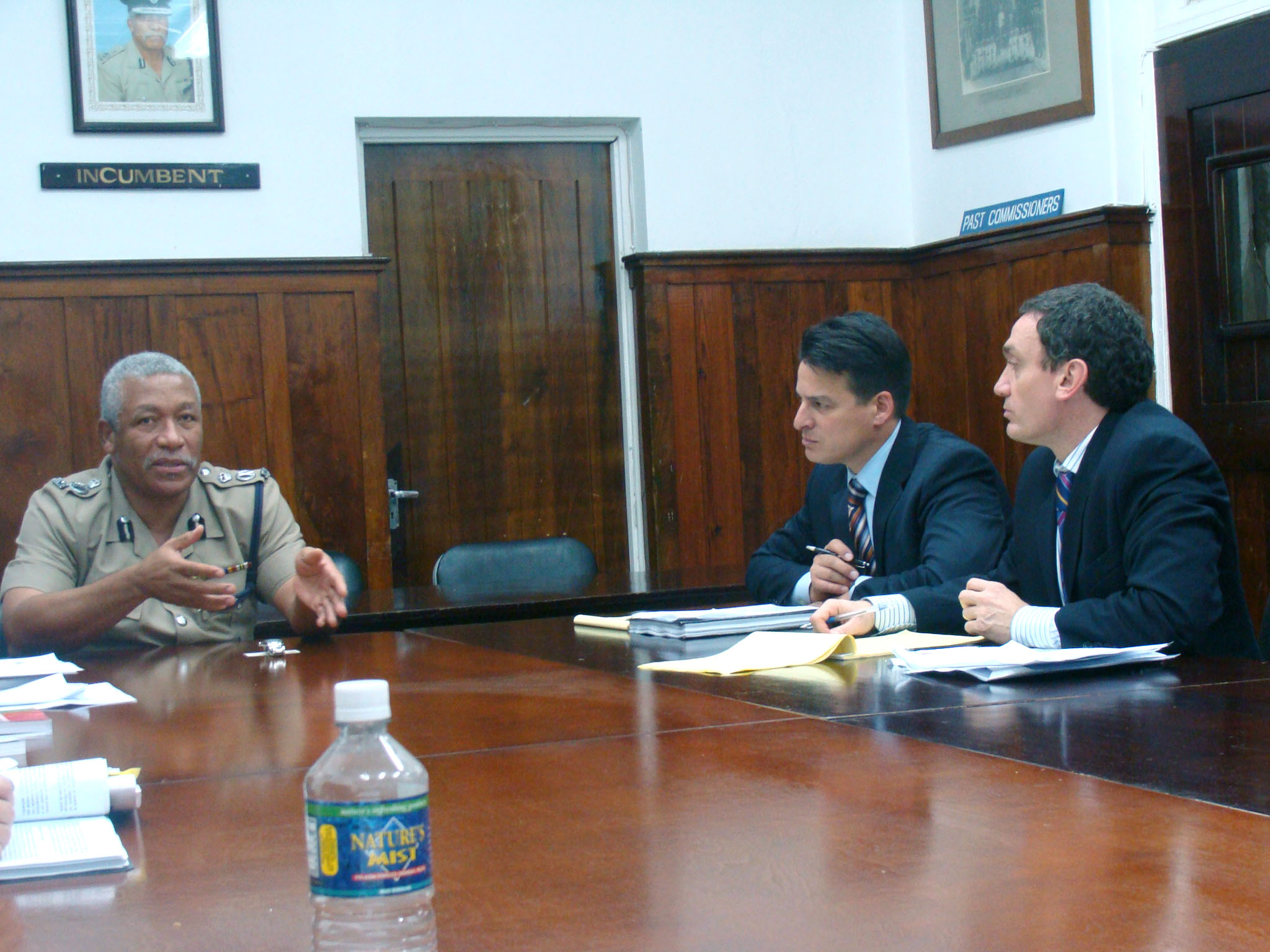
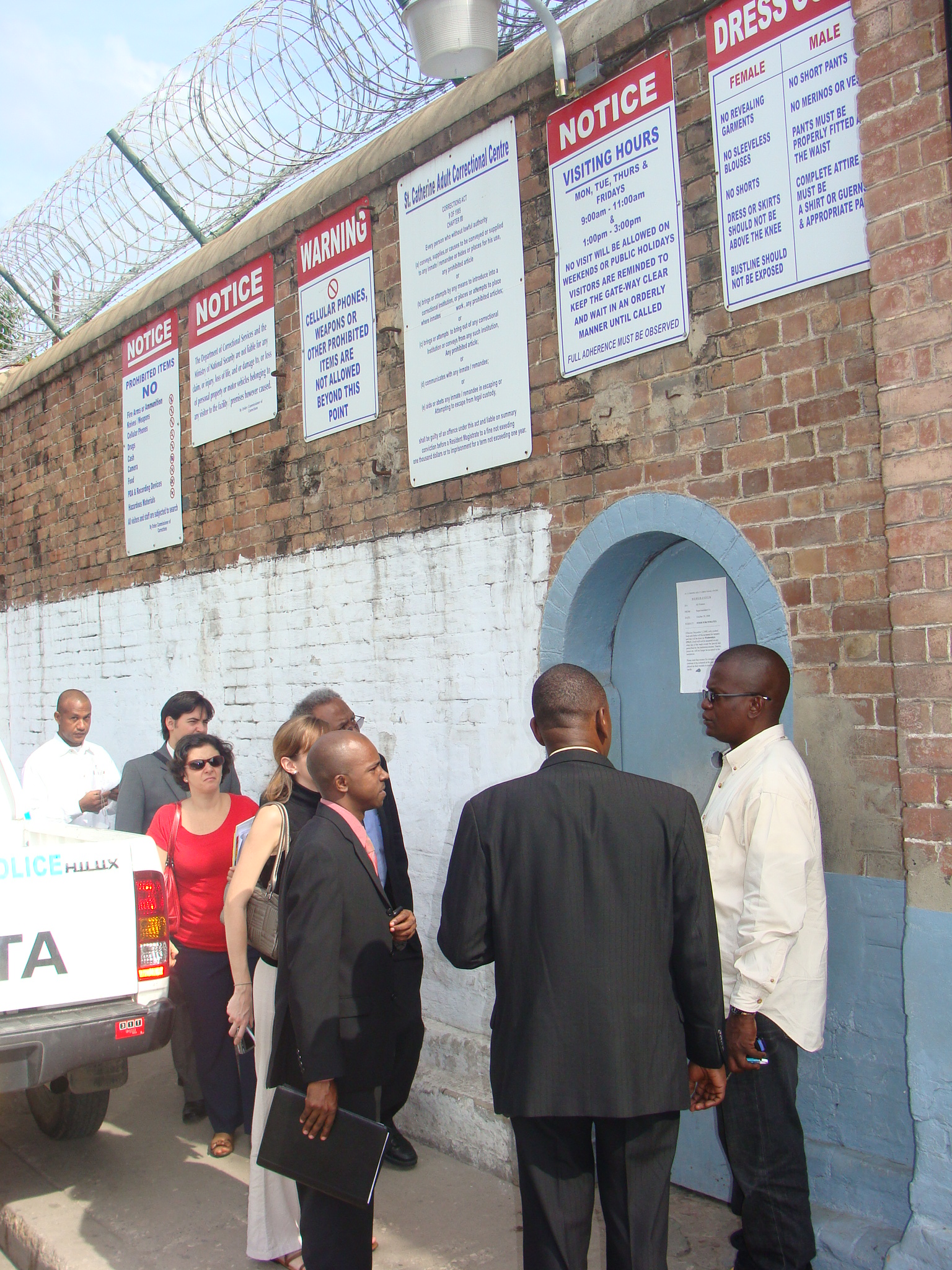
The IACHR delegation that conducted an onsite visit to Jamaica in December 2008 was made up of the Chair of the Commission, Paolo Carozza; its First Vice-Chair, Luz Patricia Mejía; its Second Vice-Chair, Felipe González; Commissioner Sir Clare K. Roberts; the Executive Secretary of the Inter-American Commission, Santiago A. Canton; the Assistant Executive Secretary, Elizabeth Abi-Mershed; attorneys Mario López-Garelli, Angelita Baeyens, and Ismene Zarifis; press director María Isabel Rivero; and assistants Gloria Hansen and Melanie Blackwell.
During the visit, the Commission met with representatives of the government of Jamaica and members of civil society. The IACHR also organized a promotional activity in conjunction with the Ministry of Justice and Jamaicans for Justice, and signed an agreement with the Norman Manley Law School that seeks to deepen and strengthen institutional cooperation to promote awareness of the inter-American human rights system in the Caribbean. At the end of the visit, the Commission issued its preliminary observations . The IACHR is currently preparing a report on the human rights situation in Jamaica.
2007
Haïti, Du 16 au 20 avril 2007
La Commission Interaméricaine des Droits de l'Homme a visité la République d'Haïti en Avril 2007, à l'invitation du gouvernement. La délégation était dirigée par Clare K. Roberts, Commissaire et Rapporteur pour Haïti, et comprenait aussi des membres du Secrétariat exécutif.
Lors de la visite, la Commission a rencontré des représentants du gouvernement haïtien et les membres de la société civile, et des représentants des organisations internationales. La Commission a rencontré le Président de la République d'Haïti, René Préval; le Premier ministre Jacques Edouard Alexis. Il a également rencontré le Président de la Cour suprême.
À la fin de la visite, la CEDH a publié le communiqué de presse 24/07 (en anglais).
2004
Haïti, Du 1 septembre 2004 au 15 juillet 2005
En 2004 et 2005, la Commission a effectué trois visites en Haïti avec le gouvernement et avec le soutien financier du gouvernement de la France: la première du 1 au 3 Septembre 2004 ; la seconde du 18 au 22 Avril 2005 ; et le troisième du 11 au 15 Juillet 2005. Au cours de ces visites, les délégations de la Commission ont demandé des informations sur l'état des mécanismes de protection des droits de l'homme en Haïti à la suite des événements de Février 2004, et de la situation en particulier l'administration de la justice dans le pays. La Commission a également visité Haïti du 18 au 22 Août 2003 grâce à l'invitation de l'État.
Les délégations de la Commission ont rencontré des représentants du Gouvernement de transition, le Conseil des notables, les juges de la Cour de première instance, la Cour d'appel et la Cour suprême, les membres de la société civile, des associations de juges, des avocats et des juges et des représentants d'autres organisations internationales, y compris la MINUSTAH et le Programme pour le développement des Nations Unies, ils ont visité le centre pénitencier National et d'autres institutions pertinentes, et ils ont recueilli la documentation pertinente. Lors de ses visites, la Commission a également procédé à trois séminaires de formation sur le Système Interaméricain des droits américain avec des fonctionnaires de divers ministères, et des représentants de diverses organisations gouvernementales et non-gouvernementales.
Les observations faites au cours de ces visites ont été inclus dans le rapport Haïti: justice en deroute ou l’état de droit ? defis pour Haïti et la communaute internationale .
2003
Haïti, Du 18 au 22 août 2003
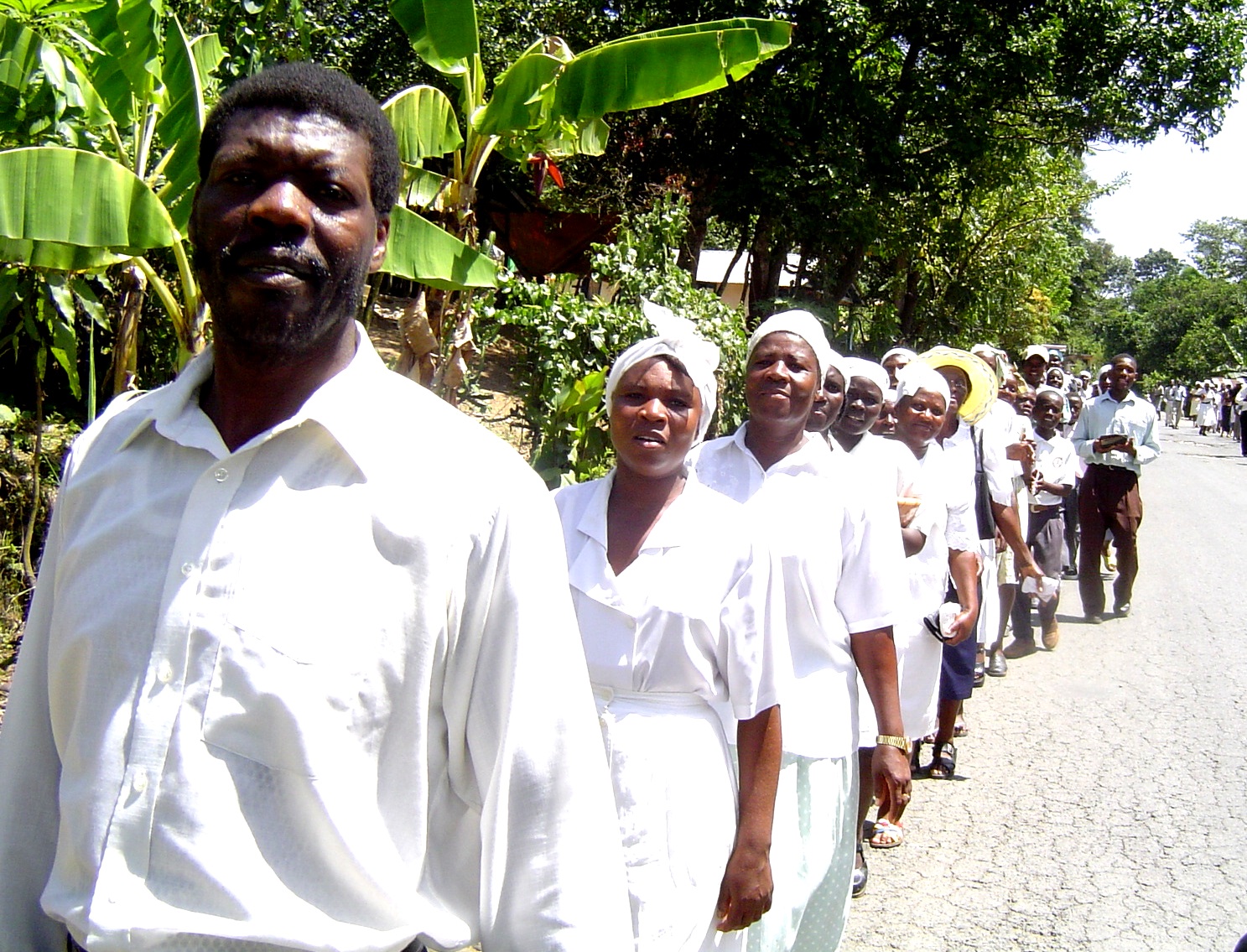
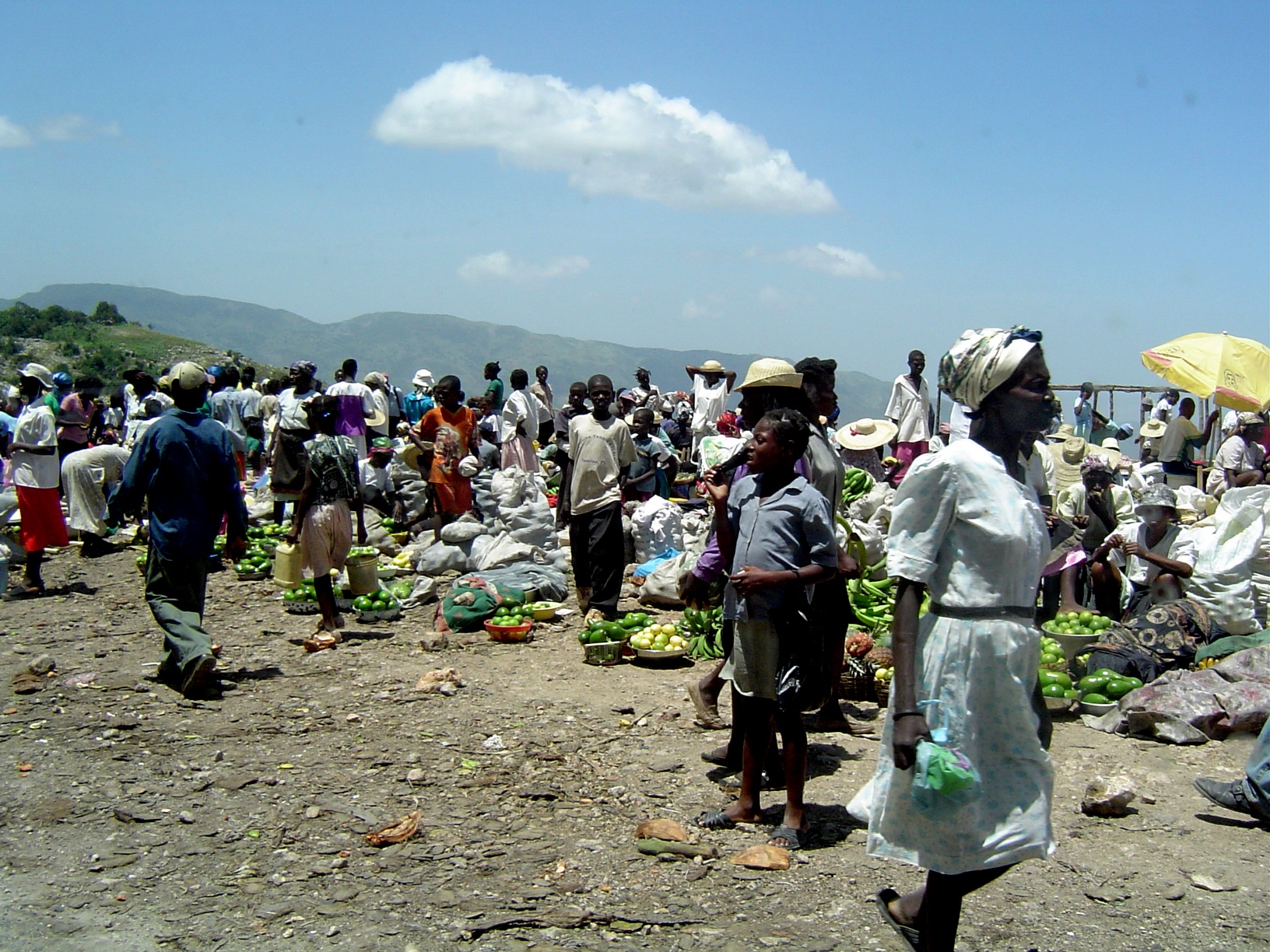

Le 22 Août, 2003 mis fin à une visite en Haïti par la Commission, tenue à l'invitation du gouvernement à observer la situation des droits de l'homme. La délégation était composée de la présidente de la Commission, la Commissaire Marta Altolaguirre; le Deuxième vice-président de la CIDH et Rapporteur pour Haïti le commissaire Clare Kamau Roberts. Ils étaient accompagnés par Mario López Garelli et Bernard Duhaime, les avocats des droits de l'homme du Secrétariat exécutif de la CIDH. Lors de la visite, la Commission a rencontré des membres du gouvernement haïtien, dont le Premier ministre Yvon Neptune, ainsi que les membres de la société civile et des représentants des autorités locales. La visite a eu lieu dans les villes de Port-au-Prince, Cap-Haïtien et aux Gonaïves et c'était axée en particulier sur l'administration de la justice, la primauté du droit et l'impunité.
Le 22 Août, la Commission a publié le communiqué de presse 24/03 sur la visite en Haïti.
2000
Haïti, Du 21 au 25 août 2000
Le 25 Août 2000 s’achève une visite sur place pour mener la CIDH en Haïti grâce invitation du gouvernement afin d'observer la situation des droits humains dans ce pays. Une partie de la visite du président de la Commission, Hélio Bicudo, et les commissaires Peter Laurie et Julio Prado Vallejo et le Secrétaire exécutif, Jorge E. Taiana, adjoint, David J. Padilla, Secrétaire exécutif et les avocats et Bertha Santoscoy Poitevien Raquel Cabral.
Dans son communiqué de presse 11/00 , publié à la fin de la visite, la Commission a souligné les circonstances dramatiques dans lesquelles la vie quotidienne de la société haïtienne, la faiblesse chronique des institutions de l'Etat, et le défi qui font face les haïtiens pour atteindre une jouissance effective des droits de l’homme.
1997
République dominicaine, Du 16 au 20 juin 1997

The IACHR carried out an onsite visit to the Dominican Republic in June 1997 in order to observe the human rights situation in that country. The delegation was composed of the Chair of the IACHR, John S. Donaldson; the Rapporteur for the Dominican Republic, Commissioner Claudio Grossman; Commissioner Álvaro Tirado Mejía; the Executive Secretary, Jorge E. Taiana; and staff of the Executive Secretariat.
During its visit, the Special Commission met with the President of the Republic, Leonel Fernández Reyna, as well as with other State authorities, international organizations, and nongovernmental organizations, and visited detention centers. Working meetings were also held in reference to petitions and cases.
Following this visit, the IACHR published the Report on the Situation of Human Rights in the Dominican Republic , which was approved on October 7, 1999. In its 2001 Annual Report, the IACHR published a Follow-up Report on the State’s compliance with the recommendation in that report.
1994
Haïti, Du 16 au 20 mai 1994
La visite en Haïti a eu lieu du 16 au 20 mai 1994. La délégation de la Commission était composé des commissaires Patrick Robinson, John Donaldson et Claudio Grossman, ainsi que du secrétaire exécutif, Edith, et les avocats Bertha Santoscoy -Noro, Relinda Eddie et Isabel Ricupero.
Lors de sa visite, la Commission a rencontré le Premier ministre Robert Malval, et d'autres autorités gouvernementales. La Commission est également entretenu avec le coordonnateur de l'ancienne Commission présidentielle, le Père Antoine Adrien, et des représentants d'organisations non gouvernementales, y compris les organisations populaires de base, les groupes de défense des droits de l'homme, des dirigeants de divers partis politiques, les représentants des médias , l'industrie et les différentes églises. En raison de l'absence d'autorisation, la délégation ne pouvait pas visiter le centre pénitencier national à Port-au-Prince et d'apprendre directement de la situation juridique des détenus, et de l'état général que la détention est maintenue. La Commission a entendu le témoignage d'un grand nombre de victimes de violations des droits de l'homme, subdivisés en cinq groupes pour atteindre et répondre à tout le monde, et de l'exploitation dans des lieux secrets par crainte exprimée être identifiés.
Aussi, entre le 22 et le 27 mai de 1994, une délégation de la Commission a visité les Bahamas pour connaître la situation des réfugiés haïtiens dans ce pays. La délégation était composée du président, Michael Reisman, et les commissaires Leo Valladares Lanza et John Donaldson, et par le Secrétaire exécutif, Edith, le Secrétaire exécutif adjoint, David Padilla, et la spécialiste des droits humains, Relinda Eddie. La délégation a visité les établissements haïtiens dans Great Abaco (Marsh Harbour, Treasure Cay), Grand Bahama (Freeport), Eleuthera et à New Providence et de la détention de Camp Carmichael Road.
Le 9 Février 1995, la Commission a approuvé le Rapport sur la situtation des Droits de l'Homme en Haïti .
1993
Haïti, Du 23 au 27 août 1993
La Commission a visité Haïti du 23 au 27 Août 1993. La délégation était composée du vice-président de la Commission, Michael Reisman, et des commissaires Oliver Jackman, Marco Tulio Bruni Celli, Leo Valladares Lanza et Patrick Robinson; Secrétaire adjoint exécutif, David Padilla, et des droits de l'homme spécialistes Bertha Santoscoy, Relinda Eddie et Meredith Caplan.
La délégation de la CIDH a rencontré le Premier ministre Robert Malval, et des représentants de certains et des principaux partis politiques. Elle a également tenu des réunions avec les membres de la Mission civile OEA / ONU, elle a rencontré des représentants d’organisations non gouvernementales des droits de l'homme, elle s’est réuni avec le commandant en chef des forces armées, Raul Cédras, et les membres du personnel, ainsi que plusieurs des membres du Parlement, des représentants des médias, des dirigeants syndicaux et des autorités religieuses. La Commission a pris des témoignages de victimes de violations des droits humains par les militaires. Divisé en sous-groupes, la délégation de la CIDH a visité l'intérieur, y compris la région du Plateau Central, la région de l'Artibonite, aux Gonaïves, entre autres. La prison a été rendue à Port-au-Prince. Les allégations de violations des droits humains ont également été signalées.
Le 11 Février 1994, la CIDH a approuvé le Rapport sur la situation des Droits de l'Homme en Haïti 1993 .
1991
Haïti, Du 5 au 7 décembre 1991
La Commission a fait une visite de travail en Haïti du 5 au 7 Décembre 1991. La délégation était composée du président de la Commission, Patrick L. Robinson, vice-président, Marco Tulio Bruni Celli, et des spécialistes des droits de l'homme Bertha Santoscoy-Noro, et Luis Jiménez. La délégation a rencontré le ministre des Affaires étrangères et des cultes, Jean-Jacques Honorat et d'autres autorités, ainsi que des représentants d'organisations des droits humains et des partis politiques; elle a visité le centre de service pour les enfants "La famille c’ est la vie", elle a rencontré des représentants des médias, elle a interviewé des représentants des syndicats et de l'Eglise, ainsi que d'autres forces actives.
1990
Haïti, Du 17 au 29 avril 1990
CIDH a effectué une visite en Haïti du 17 au 29 Avril 1990. La délégation était composée du président de la Commission, Oliver H. Jackman, vice-président, Leo Valladares, et le commissaire Patrick L. Robinson; Secrétaire adjoint exécutif, David J. Padilla, et les droits experts Luis F. Jiménez et Bertha Santoscoy.
La Commission a rencontré le Président d'Haïti, Ertha Pascal Trouillot, et d'autres autorités. Elle a également rencontré des représentants d'organisations des droits humains et des partis politiques, elle a rencontré des représentants de la presse pour connaître l'état de la liberté d'expression, les réunions tenues avec des juristes haïtiens et des représentants des syndicats, de l’industrie, la Chambre de commerce, et de l'Église, ainsi que d'autres forces de la nation. La délégation s’est installée à Pont Sonde, Saint-Marc et Piatre et elle a pu observer les graves dommages infligés à la dernière population et elle a rapporté sur les violations des droits de l'homme dans les régions. Elle a également entendu des gens de différentes couches sociales, dont elle a reçu des plaintes, des communications et de l'information concernant le respect des droits de l'homme.
Le 8 mai 1990, la CIDH a approuvé le Rapport sur la situation des Droits de l'Homme en Haïti (en anglais).
1988
Haïti, Du 29 août au 2 septembre 1988


La Commission a effectué une visite en Haïti du 29 Août au 2 Septembre 1988. La délégation n'a pas pu rencontrer le président du gouvernement militaire, Henri Namphy, mais elle a rencontré le ministre des Affaires étrangères, le général Herard Abraham, ministre de Justice, le brigadier général Fritz Antoine, ministre de l'Intérieur et de la Défense nationale, le général Williams Regala, entre autres. Des réunions ont également eu lieu avec des organisations de défense des droits de l'homme, des dirigeants politiques, des membres de la presse écrite et audiovisuelle, les responsables des institutions religieuses et les secteurs d'activité et de travail ont été menées. La délégation s’est également rendue à Saint-Marc, Pont Sonde, Petite Rivière, Thomonde, Papaye et Hinche, afin de vérifier la situation des droits de l'homme à l'intérieur d'Haïti.
Le 7 Septembre 1988, la CIDH a approuvé le Rapport sur la situation des Droits de l'Homme en Haïti .
1985
Suriname, Du 12 au 18 janvier 1985
The IACHR carried out a visit to Suriname January 12-18, 1985. The delegation met with Acting Prime Minister E.L. Tjon Kie Sin and the Acting President of the Republic, L.P. Ramdat Misier; the Acting Chief Justice of the Supreme Court, Oosterling; and a number of Cabinet members. The IACHR devoted at least half its time to private visits with religious, political, labor, press, university, and professional leaders. It also received a number of private citizens who wished to lodge complaints of human rights violations in the country. The delegation also traveled to the interior of the country and visited the Driettabeje community and the village of Tepoe, among other places.
On October 2, 1985, the IACHR approved the Second Report on the Human Rights Situation in Suriname .
1983
Suriname, Du 20 au 24 juin 1983
The IACHR carried out a visit to Suriname June 20-24, 1983, at the invitation of the government. The delegation was composed of Commissioners Andrés Aguilar, Francisco Bertrand Galindo, and Tom J. Farer; the Executive Secretary, Edmundo Vargas Carreño; specialists Ernst Brea, Christina Cerna, and Diana Decker; and Claudio Grossman, as special adviser.
On October 6, 1983, the IACHR approved the Report on the Human Rights Situation in Suriname .
1978
Haïti, Du 16 au 25 août 1978
La Commission s’est rendue en Haïti entre le 16 et 25 Août 1978, à l'invitation du gouvernement d'Haïti. La délégation était composée du président de la Commission, Andrés Aguilar, et les commissaires Carlos García Bauer et Marco Monroy Cabra, et le personnel du Secrétariat exécutif de la CIDH.
La Commission a visité la ville de Port-au-Prince et deux villes du pays: Cap-Haïtien et Jacmel. La Commission a rencontré le président, Jean-Claude Duvalier, et d'autres autorités des trois branches du gouvernement, ainsi que l'Archevêque métropolitain, des membres du corps diplomatique accrédité près du gouvernement d’Haïti, et des représentants de la société civile ainsi que les autorités locales, à la fois civile et militaire. La délégation a reçu des rapports et des témoignages de personnes d'Haïti, ainsi que porte-parole des différents religieux et des représentants des syndicats professionnels et des étudiants, et des groupes d'associations publiques et les organisations civiques. Ils ont visité le centre Pénitencier national à Port-au-Prince, et a Cap Haïtien et Jacmel dans des prisons locales, ils pouvaient librement interroger les prisonniers et ceux qui ont exprimé leur désir de déposer des plaintes. La Commission a également visité quelques usines, en particulier Ciment d'Haïti, où il y avait des conflits de travail récents, et elle s’est rencontrée séparément et en privé avec les employeurs, les travailleurs et les dirigeants syndicaux.
Le 13 Septembre 1979, la Commission a approuvé le Rapport sur la situation des Droits de l'Homme en Haïti .
1965
République dominicaine, Du 1 novembre 1965 au 7 juillet 1966
The Commission carried out a visit to the Dominican Republic in 1966, at the invitation of the President of the provisional government, Héctor García Godoy. The purpose of the visit was to observe the human rights situation during the process of political normalization. The delegation was composed of Commission Chair Manuel Banchi and Commissioners Ángela Acuña de Chacón, Carlos A. Dunshee de Abranches, Daniel Hugo Martins, and Durward V. Sandifer. The Commission traveled throughout the interior of the country and visited prisons such as La Victoria and Bonao Prison, in addition to meeting with authorities and civil society representatives.
The IACHR approved the report on this visit on October 28, 1966.
République dominicaine, Du 1 juin au 5 septembre 1965
On June 1, 1965, the IACHR began a visit to the Dominican Republic. The delegation was composed of the Chair of the Commission, Manuel Bianchi, and Commissioners Carlos Alberto Dunshee de Abranches, Ángela Acuña de Chacón, and Durward V. Sandifer, as well as IACHR Executive Secretary Luis Reque and human rights specialists Isidoro Zanotti, Renzo Minut, Álvaro Gómez, and Guillermo Cabrera. The IACHR carried out the visit to examine the human rights situation in the country, after being asked to do so by the so-called Constitutional Government and the so-called Government for National Reconstruction, both of which had been installed following the start, on April 24, 1965, of a movement that affected the country’s stability and led to the deaths of thousands of people and innumerable human rights violations. The IACHR met with the President of the Constitutional Government, Francisco Camaño, and with the President of the Government of National Reconstruction, Antonio Imbert Barrera. The Commission also visited San Francisco de Macorís, San Pedro de Macorís, La Vega, Barahona, Baní, Isla Beata, Santiago de los Caballeros, Puerto Plata, San Cristóbal, the Haina Naval Base and Las Calderas Naval Base, Azua, and Monte Plata, in order to observe the human rights situation in those cities and locales.
On October 15, 1965, the Commission approved the Report on the Actions of the Inter-American Commission of Human Rights in the Dominican Republic (Spanish only).

